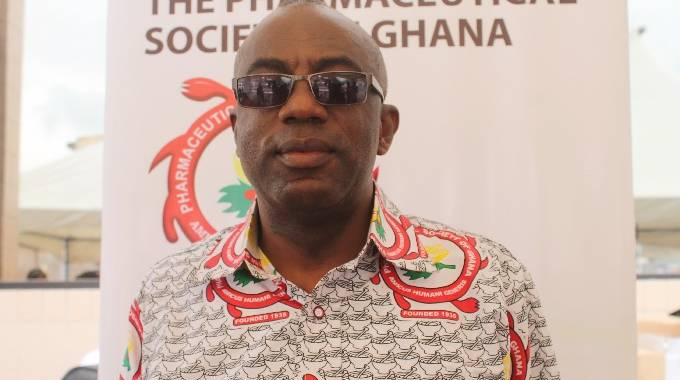
‘Inadequate number of pharmacists in hospitals worrying’
The Pharmaceutical Society of Ghana (PSGH) has expressed concern about the inadequate number of pharmacists in public and private hospitals in the country, saying it undermines quality health care.
Advertisement
According to the President of the PSGH, Pharm Thomas Boateng Appiagyei, currently, the pharmacist to population ratio in Ghana is 1:15,000 patients. He noted that it was far below the World Health Organisation’s (WHO) recommendation of 1:2,000 and, therefore, had serious health implications.
He said the trend had led to the engagement of quack pharmacists in such important healthcare institutions, and added that the situation should be halted as a matter of urgency.
Free health screening
Pharm Appiagyei expressed the concern at the launch of the 2016 World Pharmacists Day at Nima in Accra with the organisation of free health screening for residents at Nima and its environs as part of the celebrations.
The society also donated a quantity of exercise books to basic schools in that community, to enhance their academic works.
He said, “Increasingly in recent times, we have seen the trend of pharmacies and dispensaries in both public and private facilities being manned by unqualified staff. Putting restricted medicines (class A and B medicines) in the hands of unqualified personnel is dangerous.
“It is a recipe for disaster by putting the health and life of patients and members of the public at risk. This has to be addressed as a matter of urgency,” he warned.
“More pharmacists will have to be employed by the Ministry of Health, Ghana Health Service, Teaching Hospitals and all hospitals and clinics. This is because all of these facilities provide medications in one way or the other, directly to patients.
This will go a long way in ensuring patients’ health and patient safety,” he advised.
Six-year impasse
Pharm Appiagyei gave eassurance that the society would engage the government and Fair Wages and Salaries Commission, to bring the six-year impasse between the Government and Hospital Pharmacists Association (GHOSPA) to an end.
He said their gesture was to prove to Ghanaians that “pharmacists care for their health needs and well-being”.
“The PSGH leadership has offered to play a key role in engaging the Ministry of Health, Ministry of Employment and Labour Relations, Ministry of Finance and the Fair Wages and Salaries Commission to bring this unfortunate six-year impasse with GHOSPA to an end. We believe our collective efforts must be geared towards finding an amicable solution to this protracted labour dispute without compromising the integrity and quality of pharmaceutical services and care deserved by Ghanaian patients, as prescribed under our laws,” he assured.
Pharm Appiagyei explained that their action was necessitated by the continuous breakdown of negotiations with government over its grade structure and placement in public health facilities.
The International Pharmaceutical Federation (FIP) has set aside September 25 each year as World Pharmacists day to educate the public on the role of the pharmacist in the provision of healthcare and the varied, useful and impactful roles that the pharmacist plays in health care all over the world. The theme for the 2016 celebration was - ‘Pharmacists: Caring for you.’
Irresponsible use of medicines
On what he described as the irresponsible use of medicines, Pharm Appiagyei said it had been of great concern to the PSGH and pharmacists in Ghana for the past years. “We have continuously reflected, discussed and cautioned against dangers of irresponsible use of medicines, including antibiotics in Ghana,” he added.
Explaining the above, he said the threat posed by the potential proliferation of drug resistance infections took centre stage at the gathering of the United Nations General Assembly in New York, where all the 193 UN member states agreed to combat the proliferation of drug resistant infections, which was estimated to kill more than 700,000 people each year.
“This has been a great concern to the PSGH and pharmacists in Ghana for the past years as we have continuously reflected, discussed and cautioned against dangers of irresponsible use of medicines, including antibiotics in Ghana.
“The global war against antibiotics is fundamentally a call to promote responsible use of medicines. It is a living proof of the unique interventions pharmacists bring to the health delivery system anywhere,” he advised.



